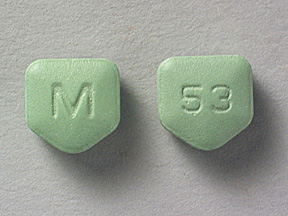
Cimetidine 200 Coupons & Savings Card – Discount Prices from $20.77
Brand for: Cimetidine
My prescription
Edit
200MG, Cimetidine (60 Tablets)
Select pharmacy

CVS
$20.77
COUPON PRICE
Albertsons
$21.07
COUPON PRICE
Walgreens
$24.30
COUPON PRICE
Walmart
$35.49
COUPON PRICECimetidine 200 savings card
Show this card to your pharmacist
CVS
$20.77
BIN
ID
PCN
GRP
019876
LHCECDF8C8
CHIPPO
LHX
Powered by
More prescriptions for heartburn
More prescriptions for heartburn
Price history for Cimetidine 200 (brand) & Cimetidine (generic)
60 Tablets, 200MG
Average retail price for Cimetidine 200
Average retail price for Cimetidine
Average SaveHealth price for Cimetidine
Our price history data is based on aggregated prescription data collected from participating pharmacies in America. Our prescription data updates daily to reflect the latest price changes. If you notice a missing data point, it means there wasn't sufficient data available to generate a monetary value for that date.
Over the last 12 months, the average discount price of Cimetidine 200 is $25.43 using the SaveHealth savings card. That's an average savings of -5.65% on Cimetidine 200 with our discount card.
*Retail prices are based on pharmacy claims data, and may not be accurate when we don't have enough claims.
Cimetidine 200 (Cimetidine) dosage forms
Dosage Quantity Price from Per unit 200MG 60 Tablets $20.77 $0.35 200MG 18 Tablets $13.61 $0.76 200MG 30 Tablets $16.68 $0.56 200MG 100 Tablets $30.42 $0.30
| Dosage | Quantity | Price from | Per unit |
|---|---|---|---|
| 200MG | 60 Tablets | $20.77 | $0.35 |
| 200MG | 18 Tablets | $13.61 | $0.76 |
| 200MG | 30 Tablets | $16.68 | $0.56 |
| 200MG | 100 Tablets | $30.42 | $0.30 |
What is cimetidine 200mg used for?
Cimetidine 200mg is used to treat conditions related to excess stomach acid, such as heartburn, acid indigestion, and sour stomach. It works by reducing the amount of acid produced in the stomach.
What to avoid when taking cimetidine?
When taking cimetidine, it is advisable to avoid alcohol, as it can increase stomach acid production and potentially worsen the condition being treated. Additionally, cimetidine can interact with certain medications, so it is important to inform the healthcare provider of all medications being taken, including over-the-counter drugs and supplements. Foods that can irritate the stomach, such as spicy or acidic foods, should also be avoided to help manage symptoms effectively.
Why is cimetidine not used nowadays?
Cimetidine is not commonly used today primarily due to its potential for drug interactions and the availability of newer medications with improved safety profiles. Cimetidine can inhibit certain liver enzymes, leading to increased levels of other drugs in the body, which can cause adverse effects. Additionally, newer medications like proton pump inhibitors are more effective and have fewer interactions, making them a preferred choice for treating conditions like acid reflux and peptic ulcers.
Why is omeprazole preferred over cimetidine?
Omeprazole is often preferred over cimetidine because it is a proton pump inhibitor (PPI) that provides more effective and longer-lasting acid suppression compared to cimetidine, which is an H2 receptor antagonist. Omeprazole is generally more effective in healing erosive esophagitis and managing conditions like gastroesophageal reflux disease (GERD). Additionally, omeprazole has fewer drug interactions compared to cimetidine, which can interfere with the metabolism of various medications.
What drugs should not be taken with cimetidine?
Cimetidine can interact with several medications, potentially altering their effects. Drugs that should be used with caution or avoided when taking cimetidine include:1. Warfarin - Cimetidine can increase the risk of bleeding.2. Phenytoin - It may increase phenytoin levels, leading to toxicity.3. Theophylline - Cimetidine can increase theophylline levels, causing toxicity.4. Lidocaine - It may increase lidocaine levels, affecting heart rhythm.5. Benzodiazepines (e.g., diazepam) - Cimetidine can increase their sedative effects.6. Metformin - It may increase the risk of lactic acidosis.7. Certain antidepressants - Cimetidine can affect their metabolism.Patients should consult their healthcare provider for a complete list of potential interactions and personalized advice.
